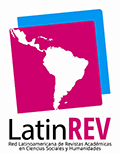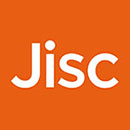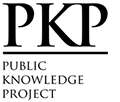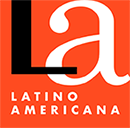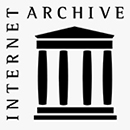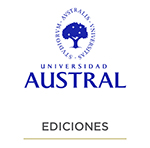The Challenges of Expert Evidence to Guarantee a Neutral Process: Myth and Realities of Procedural Theory
Abstract
Although the search for objective truth as the end of the process is not unanimously accepted in the theory of evidence, many authors agree that the means of proof are aimed at clarifying the facts behind the process. Considered in procedural theory as a mechanism to guarantee a fair and impartial process, expert evidence is expected to preserve, through science, the objective truth of the facts and the best understanding of the case by the adjudicators.
This study will question whether, in fact, this happens in the practice of expert evidence and what challenges expert evidence poses to achieve these aspirations of neutrality. In particular, the article will show how, given the characteristics of the process today, expert evidence is subject to external and subjective factors that must be considered, demystifying some common beliefs about its impartiality. This would allow for a better understanding and a critical opinion of expert evidence and its influence on decision-making.
Downloads
References
Acuña, J. E. (2015). El testimonio “experto” en el Código General del Proceso: Análisis de las consecuencias generadas por la eliminación de la posibilidad de objetar el dictamen pericial. Revista Del Instituto Colombiano de Derecho Procesal, 41, 165-184.
Aguirreazabal, M. (2011). La imparcialidad del dictamen pericial como elemento del debido proceso. Revista Chilena de Derecho, 38(2), 371–378.
Applegate, J. (1989). Witness Preparation. Texas Law Review, 68(2), 277-352.
Arce, R. y Fariña, F. (2012). Psicología forense experimental. Testigos y testimonio. Evaluación cognitiva de la veracidad de testimonios y declaraciones. En Delgado Bueno, S. (Dir.), Tratado de medicina legal y ciencias forenses (pp. 563-601). Bosch.
Barrett, E. (1962). Adversary System and the Ethics of Advocacy. Notre Dame Law, 37(4), 479-488.
Bermejo, L. (2008). La apelación ad baculum como falacia versus mala argumentación. En Marafioti. R. (Ed.), De las falacias: Argumentación y comunicación (pp. 17-26). Biblos.
Bonazzoli, J. (1998). Jury Selection and Bias: Debunking Invidious Stereotypes through Science. Quarterly Law Review, 18(2), 247-306.
Bonorino, P. R. (2002). Objetividad y verdad en el derecho. Variaciones sobre un tema de Dworkin. Universidad Externado.
Bremson, F. (1996). After OJ: What Do Americans Know about Our Justice System. Judges Journal, 35(1), 32-46.
Breyer, S. (1986). Judicial Review of Questions of Law and Policy. Administrative Law Review, 38(4), 363-398.
Buchanan, D. y Huczynsky, A. (2004). Images of influence: 12 angry men and thirteen days. SAGE Journals.
Carnelutti, F. (1982). La prueba civil (Trad. N. Alcalá-Zamora y Castillo, 2a ed.). Depalma.
Carnelutti, F. (1992). Laprova civile: Parte generale, il concetto giuridico della prova. Editorial Athenaeum.
Cascante, L. (2003). El reto para el proceso civil moderno: De la escritura a la oralidad. Iuris Dictio, 4(7), 7-11.
Casson, R. (1979). Order in court: The organisation of verbal interaction in judicial settings. University of Pennsylvania Law Review, 129, 1006-1022.
Cicchini, M. (2017). In the battle over the burden of proof. University of Pittsburgh Law Review, 79(1), 63-103.
Cornejo Aguiar, J. S. (2020). Teoría general de la prueba. Corporación de Estudios y Publicaciones.
Couture, E. J. (1993). Vocabulario jurídico. Con referencia especial al Derecho procesal positivo vigente uruguayo (5a ed.). Depalma.
Damasio, A. (2008). Descartes’ Error: Emotion, Reason and the Human Brain. Penguin Books.
Dartnall, S. y Goodman-Delahunty, J. (2006). Enhancing Juror Understanding of Probabilistic DNA Evidence. Australian Journal of Forensic Sciences, 38(2), 85-96. https://doi.org/10.1080/00450610609410635.
Devis Echandía, H. (1976). Teoría general de la prueba judicial. Zavalía.
Faigman, D. L., Kaye, D. H., Saks, M. J. y Sanders, J. (2002). Science in the Law: Standards, Statistics, and Research Issues. West Group.
Ferrer Beltrán, J. (2003). Prueba y verdad en el derecho. Marcial Pons.
Foad, H. (2010). Familiarity Bias. En Baker, H. K. y Nofsinger, J. R. (Eds.), Behavioral Finance: Investors, Corporations, and Markets (pp. 277-294). John Wiley & Sons.
Frank, J. (1950). The fight theory versus the truth theory. En Courts on trial (pp. 80-102). Princeton University Press.
Frege, G. y Poveda, L. M. (1984). Introducción a la lógica. Teorema: Revista Internacional de Filosofía, 14(3/4), 497-509.
Friedenthal, J. H. (1961). Discovery and Use of an Adverse Party’s Expert Information. Stanford Law Review, 14(3), 455-488.
Fukurai, H. (1998). Is the O.J. Simpson verdict an example of jury nullification? Jury verdicts, legal concepts, and jury performance in a racially sensitive criminal case. International Journal of Comparative and Applied Criminal Justice, 22(2), 185-210.
Gaines, P. (2016). From truth to technique at trial: A discursive history of advocacy advice texts. Oxford University Press.
Gavin, P. (2012). Racially biased juries in the criminal court. Kings Student Law Review, 3(2), 43-67.
Green, M. (2005). Legal realism as theory of law. William and Mary Law Review, 46(6), 1915-2000.
Hale, D. (2016). The Jury in America: Triumph and Decline. University Press of Kansas. https://www.jstor.org/stable/j.ctt1b4cwq2.
Hand, L. (1901). Historical and Practical Considerations Regarding Expert Testimony. Harvard Law Review, 15(1), 40-58.
Hans, V. y Jehle, A. (2003). Avoid Bald Men and People with Green Socks—Other Ways to Improve the Voir Dire Process in Jury Selection. Chicago-Kent Law Review, 78(3), 1179-1202.
Hart, H. (2011). El concepto de derecho. Marcial Pons.
Holmes, O. W. (1972). The works of Oliver Wendell Holmes. Scholarly Press.
Holmes, O. W. (2020). The common law. Routledge.
Iturralde, V. (1991). Sobre el silogismo judicial. Anuario de Filosofía del Derecho, (8), 239-272.
Kelsen, H. (2009). Teoría pura del derecho (16a ed.). Editorial Porrúa.
Kern, L. (2013). Narrative, truth and trial. The Georgetown Law Journal, 10(281), 282-334.
Krieger, M. (2009). A Twenty-First Century Ethos for the Legal Profession: Why Bother. Denver Law Review, 86(4), 865-899.
Kronke, H., Nacimiento, P. y Otto, D. (2010). Recognition and Enforcement of Foreign Arbitral Awards: A Global Commentary on the New York Convention. Kluwer Law International B.V.
Mancuso, E. M. (2015). Cosa juzgada penal, verdad procesal y verdad material. Justicia: Revista de Derecho Procesal, (2), 461-478.
Maturana Baeza, J. (2014). Sana crítica: Un sistema de valoración racional de la prueba (1a ed.). Thomson Reuters/La Ley.
Miller, L. (1988). Cross-Examination of Expert Witnesses: Dispelling the Aura of Reliability. University of Miami Law Review, 42(4-5), 1073-1100.
Miroli, A. G. (2007). Filtros epistémicos y alternativas relevantes. Andamios, 4(7), 19-54.
Montero Aroca, J. (2019). Prueba y verdad en el proceso civil: Un intento de aclaración de la base ideológica de determinadas posiciones pretendidamente técnicas. Revista del Instituto Colombiano de Derecho Procesal, 49, 117-147.
Nance, D. (2003). Reliability and the admissibility of experts. Seton Hall Law Review, 34(191), 191-253.
Nieva, J. (2010). La valoración de la prueba. Marcial Pons.
Norton, M. I. (2006). Mixed motives and racial bias: The impact of legitimate and illegitimate criteria on decision making. Psychology, Public Policy, and Law, 12(1), 36-55.
Oreskes, N. (2004). Science and public policy: What’s proof got to do with it? Environmental Science & Policy, 7(5), 369-383. https://doi.org/10.1016/j.envsci.2004.06.002.
Páez, A. (2014). La prueba testimonial y la epistemología del testimonio. Isonomía, 40, 95-118.
Peláez, G. (1973). La prueba pericial. Revista de la Facultad de Derecho y Ciencias Políticas, 47, 65-77.
Pennington, N. y Hastie, R. (1992). Explaining the evidence: Tests of the story model for juror decision making. Journal of Personality and Social Psychology, 62(2), 189-206.
Pennington, N. y Hastie, R. (1993). The story model for juror decision-making. En Hastie, R. (Ed.), Inside the juror (pp. 192-225). Cambridge University Press.
Penrod, S., Rosenblum, S., Stefek, D. y Hastie, R. (1979). Modeling Jury Selection Strategies - Computer Simulations and Attorney Behavior.
Perelman, C. (1967). La Théorie de l’argumentation. Perspectives et applications. Editions Nauwelaerts/Beatrice-Nauwelaerts.
Rivera, R. (2011). La prueba: un análisis racional y práctico. Marcial Pons.
Scott, A. (2007). Peer review and the relevance of science. Futures, 39(7), 827–845.
Seoane, J. A. (2022). Lex Artis. Anuario de Filosofía del Derecho, (38), 275-300.
Smith, N. J. J. (2012). Logic: The Laws of Truth. Princeton University Press.
Sundby, S. E. (1997). The Jury As Critic: An Empirical Look at How Capital Juries Perceive Expert and Lay Testimony. Virginia Law Review, 83(6), 1109-1188.
Taruffo, M. (2008). El proceso civil adversarial en la experiencia americana. El modelo americano del proceso de connotación dispositiva. Temis.
Taruffo, M., Ferrer, J. y Manríquez, L. (2008). La prueba. Marcial Pons.
Tuzet, G. (2013). Arguing on Facts: Truth, Trials and Adversary Procedures. En Dahlman, C. y Feteris, E. (Eds.), Legal Argumentation Theory: Cross-Disciplinary Perspectives (pp. 207-223). Springer Netherlands. https://doi.org/10.1007/978-94-007-4670-1_13.
Universidad Nacional Autónoma de México. (s.f.). El objeto del proceso penal. https://archivos.juridicas.unam.mx/www/bjv/libros/7/3456/5.pdf.
Vásquez, C. (2015). La admisibilidad de las pruebas periciales y la racionalidad de las decisiones judiciales. Cuadernos de Filosofía Del Derecho, 38, 101-130.
Vázquez, C. (1 de enero de 2018). El diseño institucional, el testimonio pericial y la fiabilidad del conocimiento experto. Anuario de Filosofía Jurídica y Social, (34), 61-99.
Villar Carbonell, A. (2018). La prueba pericial de parte. Universidad de Cantabria.
Walton, D. (2014). A Dialectical Analysis of the Ad Baculum Fallacy. Informal Logic, 34(3), 276-310. https://doi.org/10.22329/il.v34i3.4109.
Willens, S. (1950). Cross-Examining the Expert Witness with the Aid of Books. Journal of Criminal Law and Criminology (1931-1951), 41(2), 192-198. https://doi.org/10.2307/1138426.
Woods, A. y Grant, T. (2014). La lógica formal y la dialéctica. Razón y Revolución, (10), 1-27. https://revistaryr.org.ar/index.php/RyR/article/view/281.
Copyright (c) 2023 Juan Pablo Gómez Moreno

This work is licensed under a Creative Commons Attribution-NonCommercial-NoDerivatives 4.0 International License.
This license allows the copy, distribution, exhibition and representation of the work provided authorship is acknowledged and the work is properly quoted. Commercial use of the original work or the generation of derived works are not allowed.
The authors hereby guarantee the right to the first publication of the work to the Revista Jurídica Austral.













